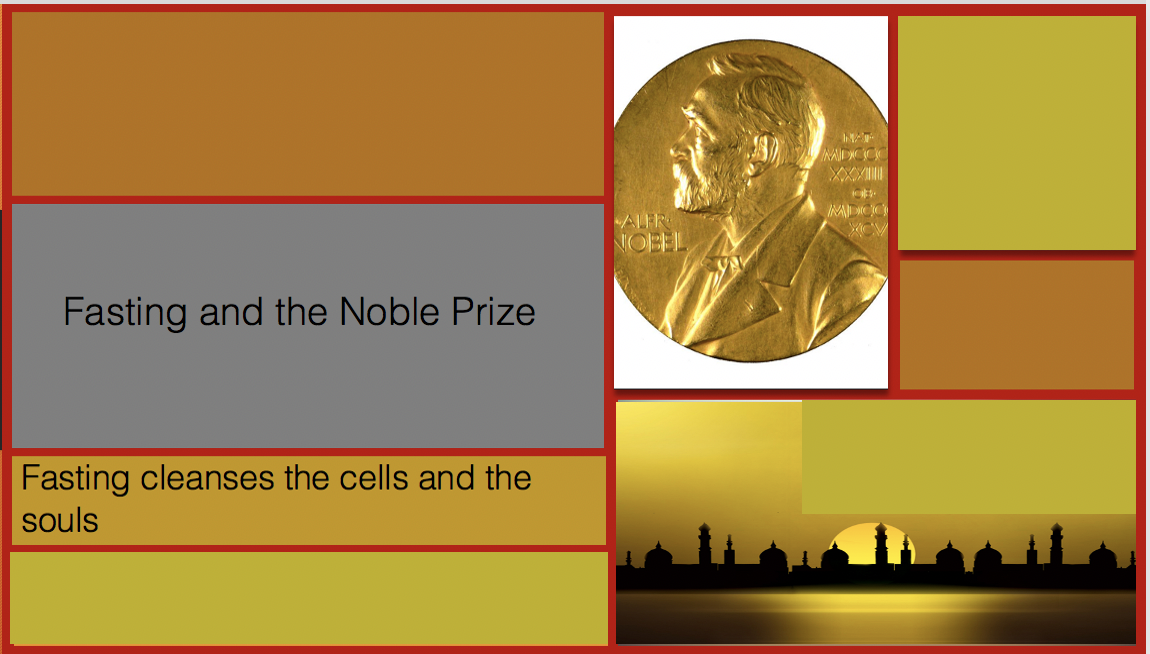
Relation between Fasting and health
A Japanese cell biologists’ research on fasting and human health got him the Nobel Prize in Medicine in 2016. His research was on autophagy, a process triggered inside our cells when we fast. Autophagy is a relatively recent scientific discovery. The scientists did not know about it until 1962. Autophagy is a biological process that takes place inside our cells and is vital in keeping our cells healthy and live longer.
To recognize the crucial research works in this field, the Nobel foundation offered the Nobel prize in Medicine in 2016 to Yoshinori Ohsumi, a prominent Japanese cell biologist.
Autophagy: the natural cleanser
Autophagy involves cleaning up the scrap proteins from the damaged cellular structures, viruses, and bacteria that infect our cells. In other words, autophagy prevents our cells from becoming a junkyard from the damaged proteins by metabolizing them.
It also helps destroy infection from the cells, produces amino acids to form new parts of the cells, and prevents inflammations. So, autophagy is critical for a cell’s well-being, cell survival, and slowing down the aging process.
Fasting and Autophagy
The significant benefit of fasting is its unique capability to stimulate autophagy. Studies suggest that fasting is the most potent triggering factor for autophagy. Exercise stimulates autophagy to a lesser degree. As shown in the studies, 12+ hours of fasting trigger autophagy by increasing the Glucagon (a hormone) level, enabling autophagy.
Fasting does the job to our body like a handyman does to renovate a house. Fasting helps remove and replace older worn-out parts of the cell with new components; it also recycles the old parts for you. Also, fasting stimulates growth hormone from the pituitary gland that, in turn, builds new necessary components for the cells.
https://www.ncbi.nlm.nih.gov/pmc/articles/PMC6257056/
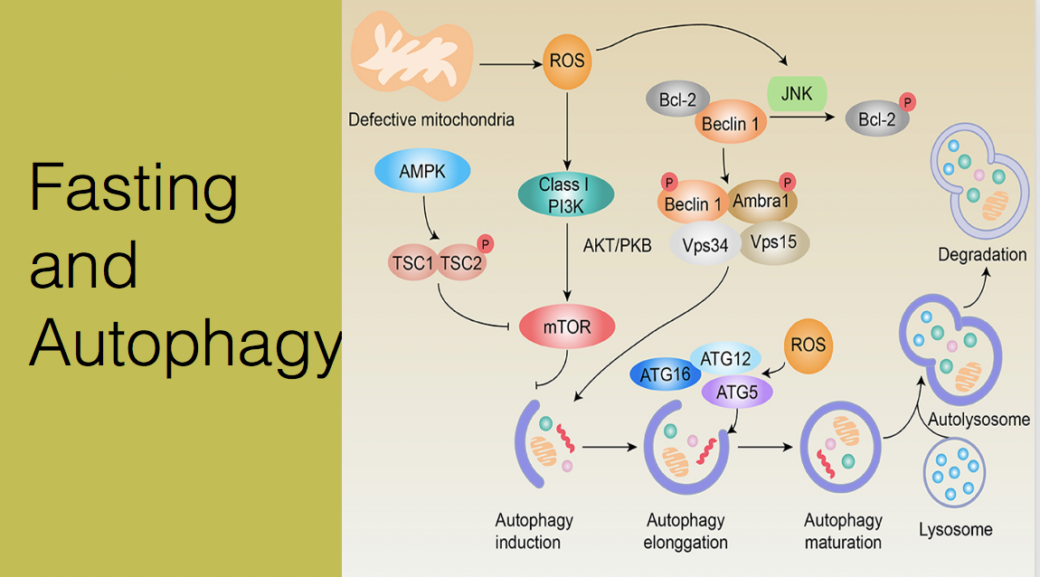
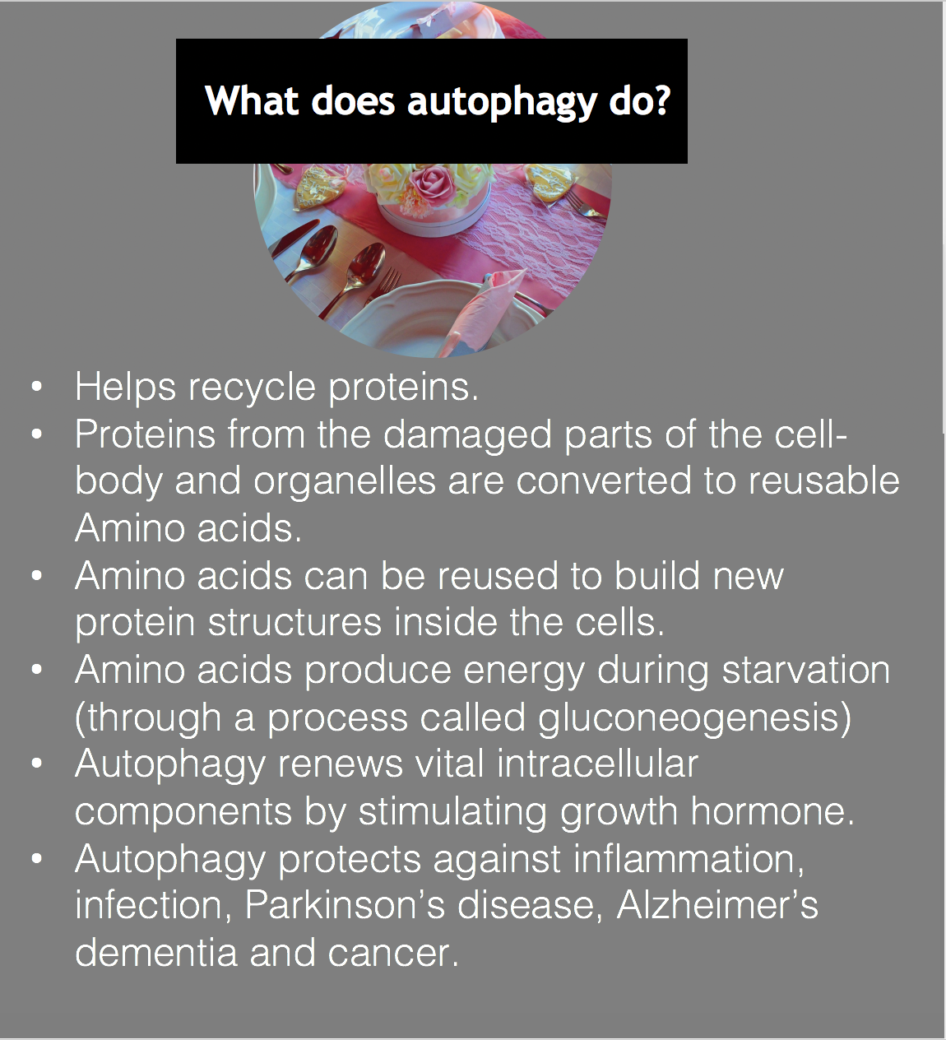
Fasting in Ramadan: Where science meets humanism and spirituality
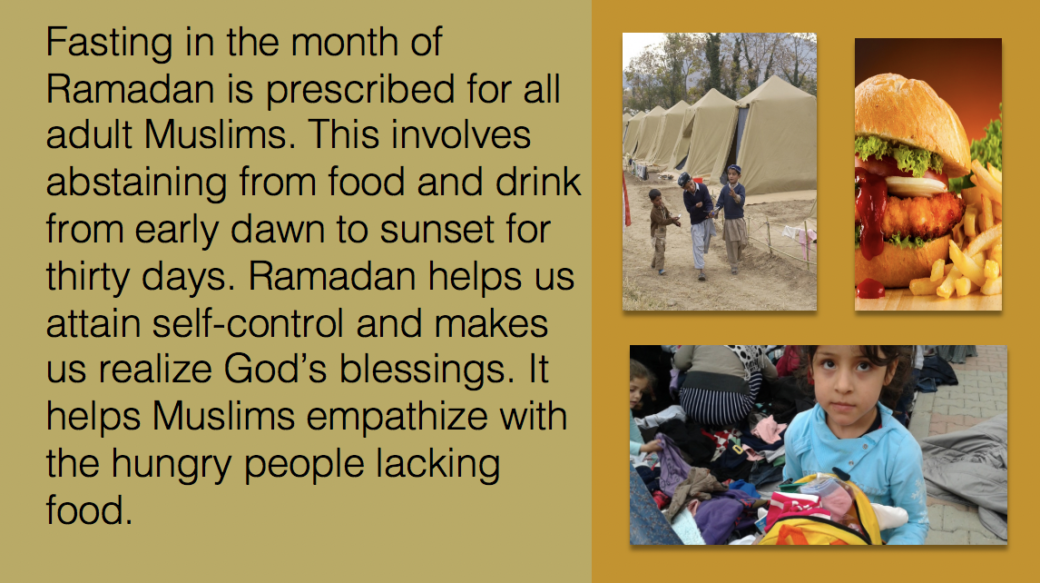
Fasting in Ramadan and the health benefits
The positive effects of fasting on human health include decreasing obesity, lowering cholesterol levels, helping quit smoking and other addictive habits, improves systolic blood pressure, and improves blood glucose levels.
Yet, we must remember that the reason a Muslim fasts is to follow Allah’s command in the Quran: to attain “taqwa,” – which is being in a state of God-consciousness.
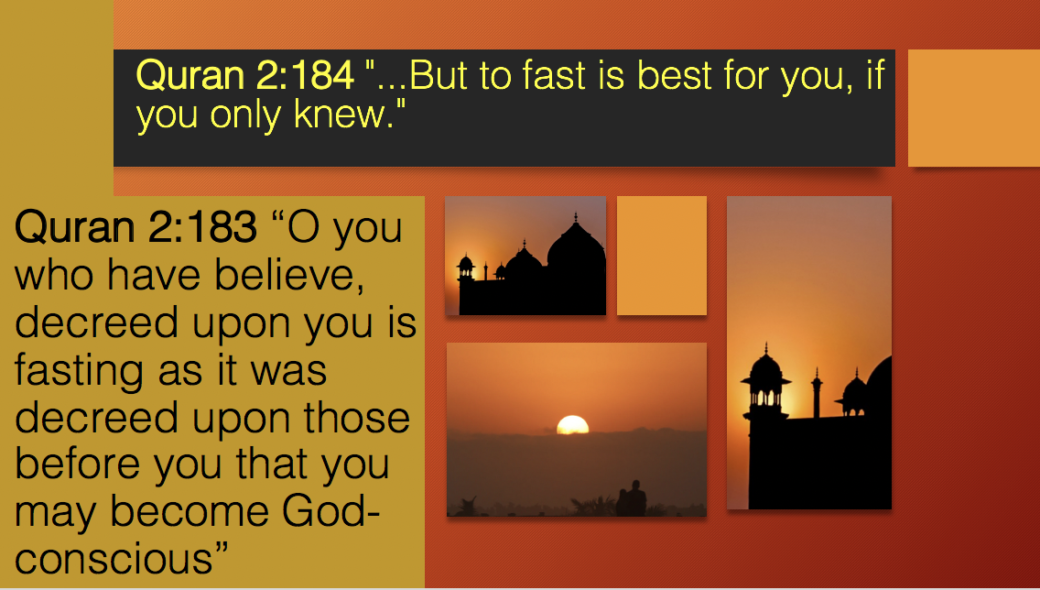
Developing new medicines
In the hope that scientists will develop new drugs that will mimic fasting and stimulate autophagy, the pharmaceutical industries have started research projects.
Keeping the balance: the feast and the fast
A practicing Muslim realizes the spiritual benefits of fasting in Ramadan. We must not forget that there is a balance between eating and fasting. While intake of nutrition allows our cells to grow naturally, intermittent fasting helps detoxify our body at a cellular level.
To maintain a healthy body, we need to keep the balance between fasting and the feast. Conditions, including diabetes and abnormal blood pressure, can affect our vital body functions and blood chemistry. For all, especially those with physical illnesses, you must discuss with your physician before starting any fasting regimen to avoid potential risks of dehydration, malnutrition, and other health hazards.
Allah knows the best

Be the first to comment